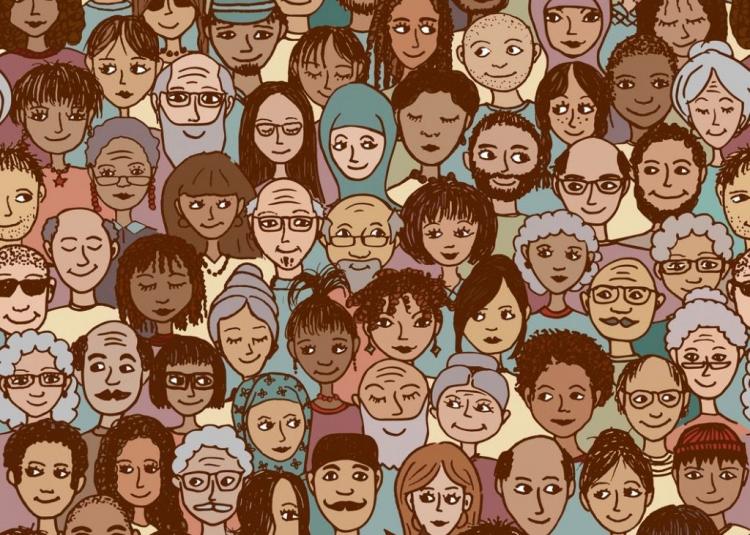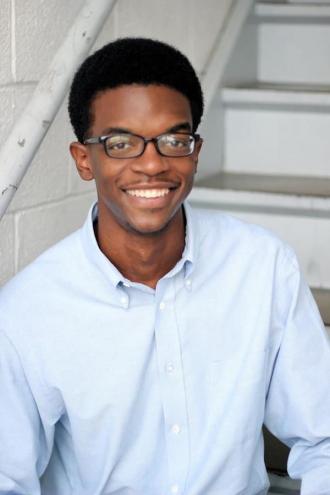Cooperatives and Neighborhood Development:


It’s no secret downtown Indianapolis is seeing rapid growth in neighborhoods long-dismissed by developers as undesirable.
It’s also no secret that the development is having negative effects on many long-term residents of those areas who are being displaced in the name of progress.
Gentrification is the word that is often thrown around to describe the displacement, mostly by people who also throw up their hands at the injustice of it all rather than roll up their sleeves and do any work to undo or prevent it from happening in the first place.
Mat Davis is not one of those people.
For the last several years, Davis has been working with a variety of groups around the city to bring a human rights approach to development.
Much of the work has been done via Axiom Collective, an organization he founded aimed at empowering communities through cooperatives. Davis worked as the initial food justice coordinator at Flanner House where he helped establish the urban Flanner Farm project; and he also served on the board of the Pogue’s Run Grocer Community Co-op.
Davis will bring his experience and ideas to a local conference later this week, Cooperatives and Diverse Communities. Organized by the Indiana Cooperative Development Center (ICDC), the one-day event features speakers from different areas of the state who represent different types of co-ops, including Davis. The goal is to provide residents with tools to combat the exclusion that often comes with economic development.
“I want neighbors and developers to work together from the beginning and shape the neighborhood together,” Davis says.
“We need to be raising awareness with residents,” Davis continues. “We need to help them understand development; give them practical, concrete things they can do to make sure they are centered in the process so the results actually end up benefiting them and not just the builders and the bankers.”
Cooperatives are one tool Davis firmly believes help prevent the displacement low-income areas of Indianapolis are now experiencing in the name of economic development.
“A lot of times these developers say, ‘we’re just doing our job, it’s the market that does the rest.’ But they’re the ones priming and plunging the market; they’re the ones reaping the rewards.”
“Co-ops are one of the strongest tools communities have to be involved in the process. You can have legal standing, you can have participation, you have equity and access. It can happen with in housing, in food, in health care. In can happen across the board in low-income neighborhoods dealing with these issues.”
While he sees the ongoing work at the Flanner Farm project as a good example of an initiative that involved the residents it serves, he doesn’t have the same opinion about the recently closed Pogue’s Run Grocer Cooperative.
“It was the flagship for gentrification in the area,” says Davis. “It didn’t address the issues of food injustice in the community, it amplified them. They weren’t servicing the community. In fact, it was price-gouging. It was a haven for the white-middle class. Not the long term-residents of the area.”
Rather than blame the failure on the co-op structure, Davis believes communities can learn from these types of failures and build better collectives in the future - ones built on diversity and inclusivity.
And he’s not just talking about grocery stores and food co-ops. Rather, Davis sees cooperatives as community-based solutions to housing, education, and commercial development.
“From the beginning, these initiatives need to involve individual residents, neighborhood groups and community groups in the process. Making sure neighbors are aware of the different types of economic development approaches, so they know which ones will lead to displacement and which ones won’t.”
“You can’t stop the private folks from coming in and doing what they’re going to do. But Community Development Corporations are using our money--taxpayers money--to do what they do. Those are public funds, but how do we hold them accountable for their actions? The answer is to have individual residents, the people who will be directly affected, participating in the process.
Friday’s Cooperatives and Diverse Communities conference is designed for members of co-ops that already exist and may want some guidance and/or tools for improvement. But it is also meant for individuals who are interested in forming co-ops for the first time.
Creating diverse co-ops, ones that truly reflect the communities they aim to serve, is the main message of the conference, but it also provides practical business advice.
“For a lot of co-ops, they just haven’t had the opportunity to learn the technical aspects, or they need help learning how to run them more efficiently. At the end of the day, they are businesses with a revenue model.”
“So the conference will address that, but then go further and ask, how do you include the social function so that your co-op is actually inclusive and actually represents the whole community and their collective interests?
“Everyone - whether you already have a co-op, or have an interest in starting a co-op - is invited,” says Davis. “This is an opportunity to come and learn how to build a more inclusive group, as well as how to deal with conflicts that can arise from differences in race, gender, religion, learning how to navigate conflict and gaining tools to solve those types of problems from the onset.”
If you go
Laura McPhee [email protected]
NUVO Oct 22, 2018







